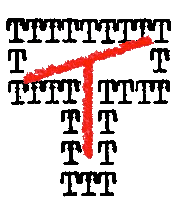By Matthew Claxton
On its debut in 2022, ChatGPT sent a spasm through the world of science fiction and fantasy publishing.
Writers, editors, and publishing professionals took up arms on opposing sides of newly formed battle lines.
One camp denounced LLMs as a pack of plagiarism machines, spewing prose that has the saccharine aftertaste of marketing copy. LLM detractors point out, correctly, that the machines can barely write a coherent short story and what they do write is crushingly dull and unpublishable.
The other faction argued that large language models (LLMs) will see inevitable improvement in writing quality, allowing them to eventually match and displace the median human writer. In such a case, it was a good idea to welcome our new software overlords as co-writing partners and productivity tools.
The Verge interviewed several authors, including Jennifer Lepp, who had already begun using Sudowrite, a ChatGPT offshoot, to write parts of her paranormal cozy mysteries.
Across two articles, Lepp insisted that she doesn’t use Sudowrite to drive the plot or create characters for her.
“But the actual words, just to get them down faster and get it out, I do,” she said.
Just the “actual words,” those inconvenient components of writing.
I don’t mean to single out Lepp just because she’s been open about her use of a ChatGPT product. At least she admits it. We have no idea how many authors, whether cranking out short books for the Kindle market or finishing up their fat novel for a big five publisher, are cutting similar corners.
This moment—one where readers have no idea if bland prose is the product of an LLM or a tired author leaning on hackneyed phrases—comes after a years-long period of mainstream science fiction and fantasy (SFF) leaning into trope-heavy writing and marketing.
Novels have always been sold by comparison to other works, but it’s the cornerstone of modern book marketing. Both publishers and readers use tropes, comps, and ever-narrower divisions of sub-genres to ensure the reader/consumer gets the book they want, as if selecting pizza toppings.
I read J.S. Dewes’s perfectly competent space opera The Last Watch without reading so much as the dust jacket, but I knew by a hundred pages that the publisher’s promotional copy would make sure you know this book was “Game of Thrones meets…” something or other in space.
(It turned out to be The Expanse).
Meanwhile, if you want to find a sub-sub-genre or specific trope, you can plug that into Amazon or Goodreads. Want some more Dark Academia? As of this writing, there are 728 results on Goodreads, including numerous anthologies and ongoing series that incorporate the term as part of the subtitle or series title. If you’re looking for “enemies to lovers,” you’re going to have to be a bit more discerning, as there are well over 50,000 books either using that term as part of their title or marketing, or tagged with it by readers.
Why bother crafting bespoke dust jacket copy to introduce the characters and describe their struggles when you can simply pin the book with “Harry Potter meets The Terminator”? (Type that into a search bar, and you’ll get Shaun Barger’s Mage Against the Machine, and even as I complain about these trends I must salute that title.)
This tropes-and-comps-first publishing strategy has resulted in conflicting advice to some aspiring new writers. For every established writer or agent urging newcomers to write the weird story that only they could write, to ignore the market, to just go for it, there is someone arguing that they should find a familiar trope and just put their own slightly different spin on it.
And from a purely mercenary viewpoint, putting your own spin on the well-worn and familiar might be good advice. The industry over the last decade hasn’t shown a lot of confidence in original voices.
How much of a publishing push did Del Rey give Simon Jimenez’s The Spear Cuts Through Water, which is now gathering a minor cult following? Is Vajra Chandrasekera’s brilliant debut Saint of Bright Doors being flung at every reviewer who can fog a mirror, as it should be? There are too few readers for Kay Chronister’s Desert Creatures, with its ghosts and Las Vegas saints and shambling cactus-human-animal hybrids. Where are the writers following in the footsteps of Chandler Klang Smith’s The Sky Is Ours, with its desperately unlikeable protagonists, its cyborg firefighters and telepathic rats?
Which is easier – selling readers on a bold new voice or giving them more of the same? We know which way the industry has placed its bets. Go and count up all the Greek myth adaptations of the last few years or the Sarah J. Maas-alikes cluttering the shelves; tell me again the comforting lie that originality is what sells.
Within SFF, there’s always been a chunk of the readership who don’t like anything challenging. They want plain, “transparent” prose, and plots connected up like Tinker Toys. Plug in the appropriate genre signifiers and they’ll buy a series steadily for 25 books.
The arrival of ChatGPT has forced the vast majority of writers, editors, and agents to proclaim that originality and voice and the human touch are what really matter in SFF writing, which is quite a turnaround for some of them.
Are they right? Or do readers trained to expect samey stories gravitate towards the grey goo that any LLM-assisted hack can pump out by the trilogy?
Right now, we have a cohort of writers, self- and traditionally published, who just want to crank out words fast regardless of quality. Even if they do care about quality, the relentless treadmill demands of modern genre publishing, especially via Amazon, force them to prioritize speed and consistency above all other considerations. Success consists in keeping a steady sales ranking, which means multiple short books per year, as many as one a month.
On the consumer side, we have a cohort of readers who just want their next trope-fix, and who will follow the algorithm and tags to find it.
And in between, at last, we have a machine to facilitate that relationship.
If you’re a fan, a reader, a writer, who actually cares about prose and voice and human creativity, how do you react to this?
Personally, I plan to plunge headlong into being a massive snob about writing.
That doesn’t mean that I’m going to be reading only the most literary of literary novels. The books I listed above have magic shadows, telepathic tortoises, gunslingers, and even straight-up fire-breathing dragons. They’re fantasy and science fiction, and they can look back to long histories of folks who wanted to write better, drawing from LeGuin and Sturgeon and Delany, as well as from currents outside of SFF.
No, my snobbery doesn’t mean turning my back on the pulp roots of SFF. It means that if I pick up a book written with lurid, pulpy prose, it better have original, well-crafted, lurid, pulpy prose.
Because if it sounds like everyone else’s pulp – or everyone else’s somber literary sci-fi novel, or everyone else’s coal smoke-reeking steampunk adventure, everyone else’s rain-lashed cyberpunk caper – I’m going to suspect that the author outsourced writing the “boring bits” to a robot.
It’s easy to say that there’s good writing and bad writing, and that AI writing is on the bad side, but it’s worse than that. Merely bad human writing still comes from recognizable human experience, it’s still a connection between reader and writer. It might be so awful you’ll want to fling the book across the room, but that’s a human reaction to a human creation.
The goal of LLM-extruded books is to eliminate these moments of human connection. Their target are readers – and they probably do exist – who mistake the signifiers of a book for the real thing. Readers who see their preferred tropes and plot beats strung together for three hundred pages, and find that sufficient.
But our goal as people should be to develop discernment. We know the difference between a home-made cake put together with real ingredients, and a sickeningly-sweet slab of dry white sponge from the grocery store. We know the difference between a hand-knit sweater, with the dropped stitch in the elbow and the frayed collar, and the slick dryer-safe Rayon version. We know the difference between a real book, that could only have come from a person, and a book lazily assembled out of book-shaped-elements.
The main goal of anyone who cares about the art of writing science fiction and fantasy should be to drive the LLMs out of the process. To do that, readers, critics, and editors have to demand better. And that starts with demanding more, from ourselves as readers and from the books on the shelves. 
Matthew Claxton’s short fiction has appeared in Asimov’s Science Fiction, Escape Pod, and SciFiction over the years. His story Terminal City Dogs, about graffiti, public acts of mourning, and a world-weary detective, will be out in Analog Science Fiction & Fact’s July/August issue. When he’s not writing made-up stories, he’s a local newspaper reporter in the suburbs of Vancouver, British Columbia. He knows more than is necessary about cyberpunk, local land use regulations, and dinosaurs.

